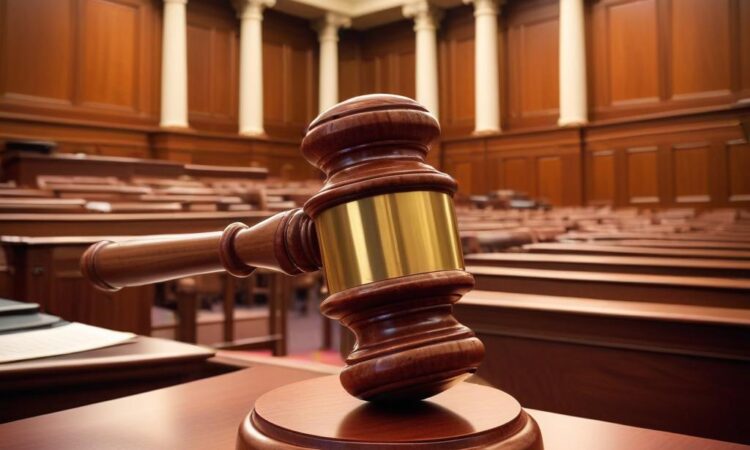Rape Inquiry Linked to Mbappé Closed
Swedish authorities have announced the closure of a rape inquiry linked to French footballer Kylian Mbappé by Swedish media. The investigation, which stemmed from allegations of an attack in Stockholm, lacked sufficient evidence to proceed, according to official statements. The decision brings an end to weeks of speculation and intense media scrutiny surrounding the high-profile athlete.
The investigation, which began [Insert Date Here], was initiated following an alleged incident in [Insert Location in Stockholm Here]. Details surrounding the allegations remained largely undisclosed throughout the investigative process, with authorities citing the need to protect the integrity of the inquiry and the privacy of those involved. The limited information released to the public fueled widespread conjecture and generated considerable debate online.
The closure of the case does not constitute a finding of innocence or guilt. Rather, it reflects the inability of investigators to gather sufficient evidence to support a criminal prosecution. This is a crucial point, often misunderstood in the public discourse surrounding such investigations. The absence of evidence does not inherently imply the absence of an incident; it simply means that the available evidence was insufficient to meet the legal threshold for prosecution.
The decision has been met with a range of reactions. Some commentators have expressed disappointment, arguing that the lack of evidence should not necessarily preclude further investigation or a more thorough exploration of the allegations. Others have emphasized the importance of respecting the legal process and upholding the presumption of innocence until proven guilty, a fundamental tenet of justice systems worldwide.
The case highlights the challenges faced by investigators in high-profile investigations involving prominent public figures. The intense media scrutiny and public interest can create a challenging environment for conducting a fair and thorough inquiry. The need for careful consideration of evidence and the protection of the rights of all parties involved is paramount in ensuring the integrity of the legal process.
Mbappé himself has not publicly commented on the allegations or the closure of the investigation. His representatives have consistently declined to issue statements, maintaining a policy of silence throughout the process. This has further fueled speculation and fueled the already significant media coverage of the case.
The Swedish authorities have emphasized their commitment to thoroughly investigating all allegations of sexual assault, irrespective of the identity of the individuals involved. They have reiterated their dedication to upholding the highest standards of justice and protecting the rights of all parties concerned. This commitment, however, is often tested by the complexities and sensitivities surrounding high-profile cases.
The closure of the investigation leaves many unanswered questions. The lack of public information regarding the specifics of the allegations and the evidence gathered has left many members of the public feeling unsatisfied. This underscores the inherent tensions between the need for transparency and the imperative to protect the privacy of those involved in criminal investigations.
Moving forward, the focus will likely shift to broader discussions about the handling of sexual assault allegations, the challenges of investigating such cases, and the impact of media coverage on the judicial process. The case serves as a reminder of the complexities and sensitivities involved in high-profile criminal investigations and the importance of ensuring fairness and justice for all parties involved.
The incident underscores the need for continued dialogue and education surrounding sexual assault, promoting awareness and understanding of the importance of reporting and supporting victims. It also highlights the complexities of the legal system and the challenges inherent in balancing the public’s right to know with the need to protect the privacy of individuals involved in sensitive legal matters.
The lengthy and detailed nature of the investigation underscores the meticulous approach taken by Swedish authorities in dealing with such serious allegations. The decision to close the case, while perhaps disappointing to some, ultimately reflects a commitment to basing legal decisions on concrete evidence and not speculation or public pressure.
The outcome of this inquiry will likely shape future discussions on the balance between public interest and the rights of the accused in high-profile cases involving allegations of sexual assault. The case serves as a stark reminder of the delicate interplay between the legal system, media scrutiny, and the public’s demand for accountability.
Despite the closure of the investigation, the incident raises broader questions about the challenges faced by victims of sexual assault in coming forward and the importance of creating a supportive and understanding environment for those who have experienced such trauma. The need for improved support systems and continued efforts to combat sexual violence remains a critical concern.
Further analysis of this case may reveal insights into the complexities of prosecuting sexual assault cases, the role of media coverage in shaping public perception, and the challenges of maintaining the integrity of the legal process amidst intense public scrutiny. The long-term implications of this case remain to be seen.
This case serves as a reminder of the importance of protecting the privacy rights of individuals involved in legal proceedings, while simultaneously ensuring transparency and accountability within the justice system. Striking a balance between these competing interests remains a crucial challenge for legal systems worldwide.
The complexities of this case underscore the need for ongoing dialogue about the challenges of investigating and prosecuting sexual assault cases, and the importance of supporting survivors and promoting a culture of respect and accountability.

